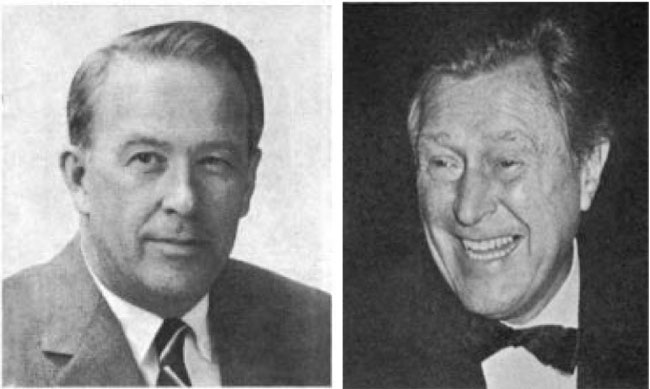We must give a great deal of credit to Ronald Reagan for the fact that freedom of emigration was not just a political matter, but his personal creed. Still the question remains: how was it that freedom of Jewish emigration became one of the top priorities in American policy vis-a-vis the USSR?

Senator Henry Jackson Congressman Charles Vanik
American public opinion generally reacted to issues of human rights violations in the USSR. But the issue of freedom of emigration was especially meaningful for Americans, who perceived themselves as a nation of immigrants.
The Jewish National Movement apparently was the largest mass national moment persecuted by the KGB. The persecution included denial of emigration rights and any expression of national identity, including the ban on teaching and learning Hebrew.
The ongoing persecution of Jews in the Soviet Union provided Western media with a constant stream of news on human rights violations, and earned favorable media coverage. The issue was enthusiastically lobbied by the Soviet Jewry Advocacy Movement in the West. A wave of empathy emerged across a whole spectrum of Western political groups and public organizations.
Public interest encouraged political figures to take part in the struggle for freedom of emigration, especially as the emigration ban was perceived in the West as violating a fundamental human right. Besides, the struggle for freedom of emigration was perceived as having realistic chances of success. It was all the more important since it affected a broad range of population groups.
The dissident groups who focused on the issue of emigration triggered a process that ended with approval of the famous Jackson-Vanik amendment, which linked the freedom of emigration with preferential rights in trade with the USA.
This is why in the 1970s and 1980s, the issues of freedom of emigration and persecution of Jews became central in the overall struggle against human rights violations in the Soviet Union.
More: My Jewish learning

Leave a Reply